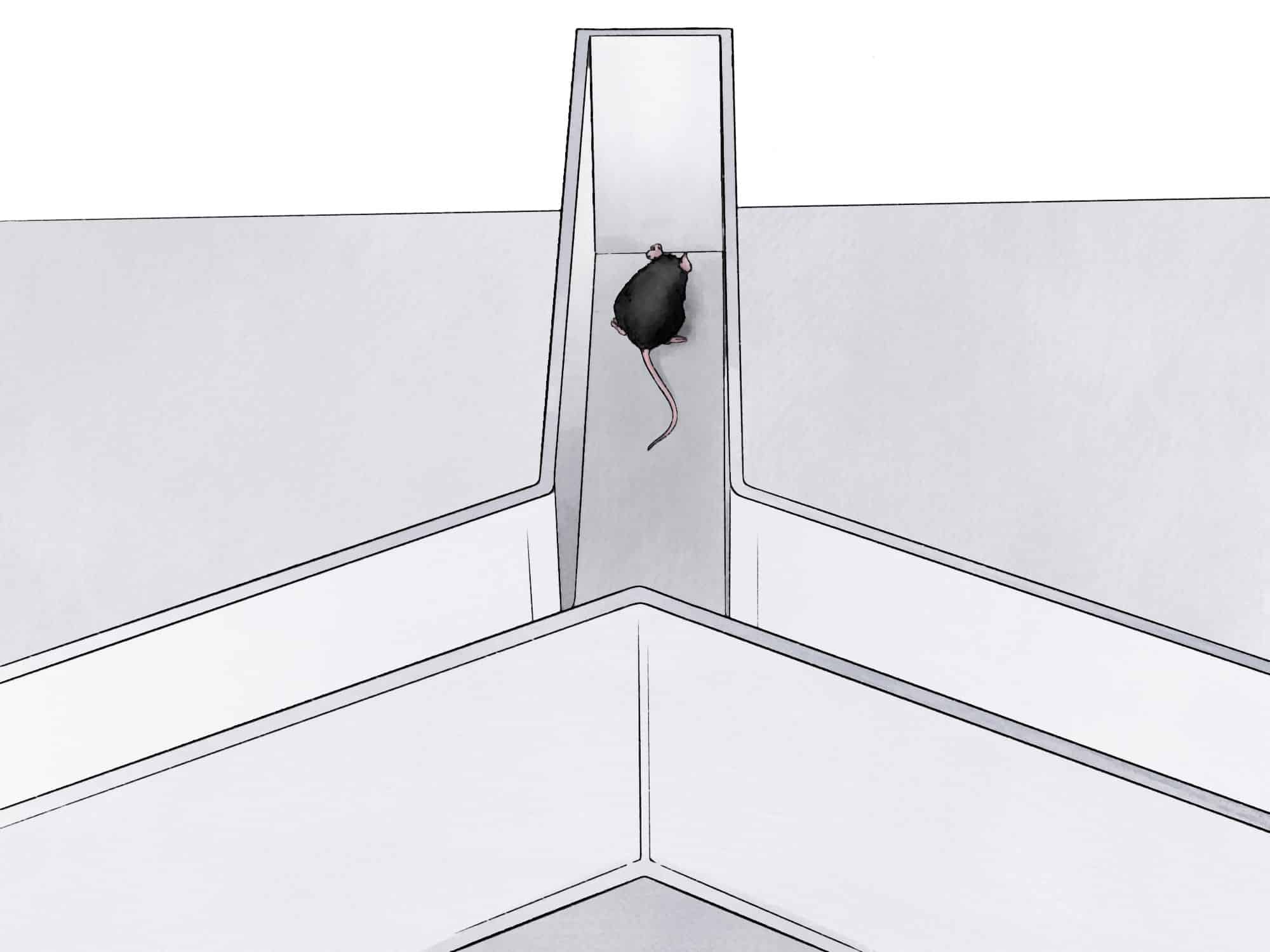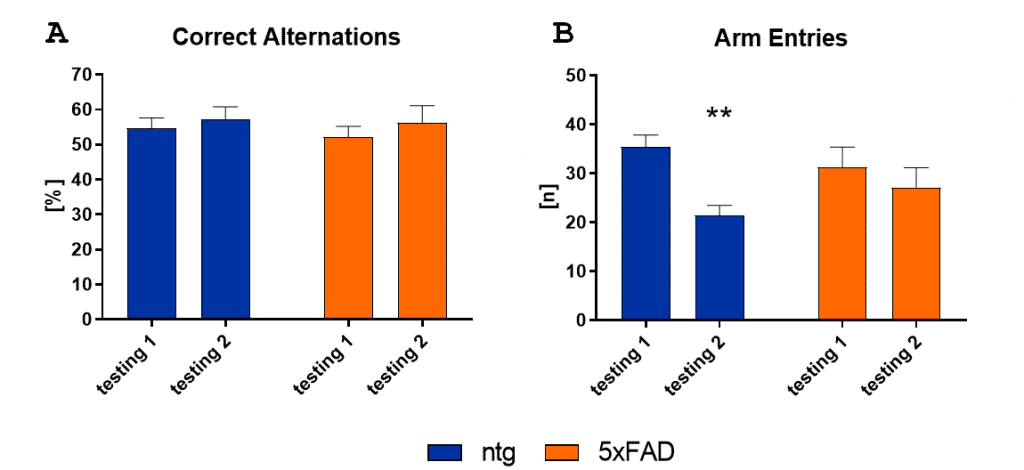The Y-maze test is routinely employed to assess spatial working memory in laboratory rodents. The test is based on the natural behavior of rodents to explore new environments. Rodents typically prefer to investigate new environments rather than familiar ones, so animals will explore a new arm of a maze before returning to the one that was previously visited. Many parts of the brain including the hippocampus, septum, basal forebrain, and prefrontal cortex are involved in this task. Spatial working memory is impaired in several neurodegenerative disorders, such as Alzheimer’s disease and frontotemporal dementia. The Y-maze can additionally be successfully employed to assess the effects of novel drug agents on cognition in models of these diseases.
Spontaneous Alternation test
Testing occurs in a Y-shaped maze with three plastic arms oriented in a 120° angle. After placing the mouse in the center of the maze, the animal is allowed to freely explore the three arms, where it should show a tendency to enter a less recently visited arm. This test is used to quantify cognitive deficits in rodent disease models and evaluate novel compounds for their effects on cognition.
Y-Maze Novelty and Memory
To test whether rodents prefer to spend time in new or familiar areas, one arm of the Y-maze is blocked, and the animal is allowed to explore the other two arms. The rodent is then placed in the start arm and the blocked arm is opened, so the animal should show a tendency to enter the formerly blocked arm more frequently. The Y-maze test is particularly useful as an initial test of memory function in mice. Results obtained in the Y-maze test can be further validated in other assays relevant to spatial learning, such as the Morris water maze and the Barnes maze, while the fear conditioning and the passive avoidance paradigms can be further employed to evaluate emotional memory.


Figure: Y-maze, longitudinal evaluation of 9 month old 5xFAD transgenic mice and non-transgenic littermates. Longitudinal evaluation of the alternation rate (A) and number of arm entries of the first and second testing in the Y-maze (B) of 5xFAD and ntg mice; n = 8 per group, mixed sex. Mean ± SEM. Two-way ANOVA. **p<0.01.
